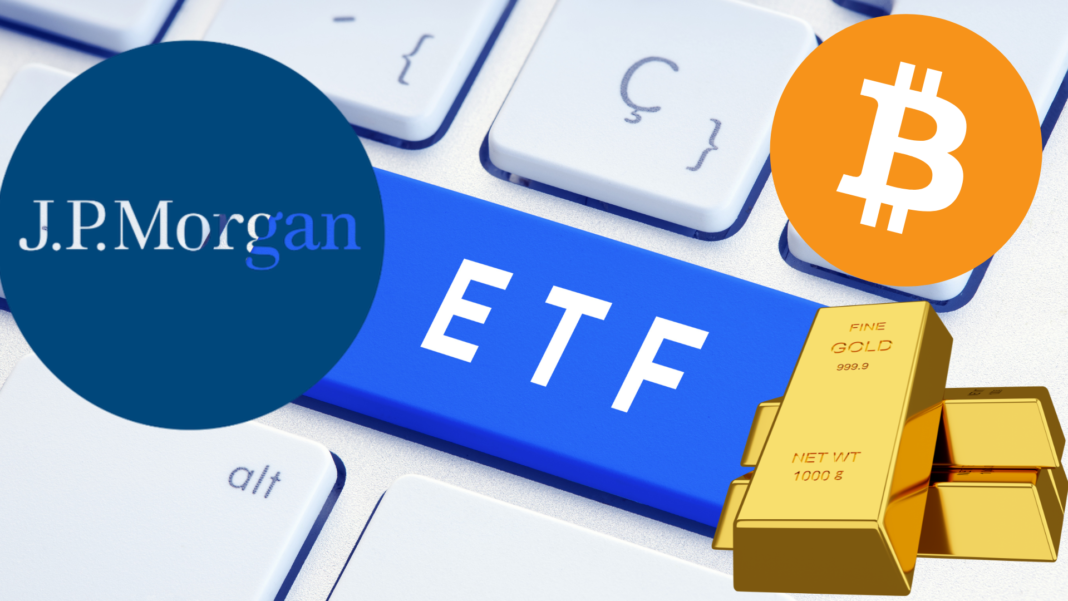JPMorgan analysts, led by managing director Nikolaos Panigirtzoglou, report that gold has attracted strong inflows in both ETF and futures markets in the first quarter of 2025, driven by investors seeking safety amid global economic uncertainty.
Meanwhile, Bitcoin has seen declining speculative interest and three straight months of ETF outflows, leaving it on the sidelines of this flight to quality.
Gold ETFs See Robust Demand
Global gold exchange‑traded funds pulled in $21.1 billion during Q1 2025, the World Gold Council data shows. Notably, China and Hong Kong–listed gold ETFs alone added $2.3 billion.
These inflows equated to about 6% of total gold‑ETF assets worldwide, with the China/Hong Kong segment growing even faster at roughly 16% of its AUM. Such figures highlight the strong appetite for gold as a hedge against market swings.
Speculators Boost Futures
Beyond ETFs, speculative investors have also ramped up gold futures buying since February. JPMorgan’s team notes that traders are adding long positions in anticipation of further safe‑haven demand.
This futures activity underpins the broader trend: even as liquidity and market breadth have dipped elsewhere, gold continues to benefit from its reputation as a stable store of value.
Also Read: Donald Trump Pushes for Fed Overhaul, Could Bitcoin Benefit From Central Bank Uncertainty?
Bitcoin Trails Behind
In contrast, Bitcoin has failed to capture any of these safety‑driven flows. Futures markets for Bitcoin show a pullback in speculative bets, and ETFs tied to the digital asset have seen outflows for three months running.
The analysts conclude that, unlike gold, Bitcoin has not earned the same trust from investors seeking refuge from turmoil.
Asia Drives Regional Growth
The data also points to Asia as a key engine for gold’s gains. Chinese and Hong Kong ETFs led the charge, reflecting both retail and institutional demand in the region.
In markets where volatility and currency risks loom large, gold remains a preferred choice over both fiat currencies and crypto alternatives.
JPMorgan’s report draws a parallel between gold flows and those seen in traditional safe‑haven currencies such as the Swiss franc and Japanese yen.
Just as investors flock to these currencies during times of stress, they are turning to gold via both ETFs and futures. Bitcoin, by comparison, has yet to establish itself in that role.
Analysts’ Take
Panigirtzoglou and his colleagues stress that gold’s ability to attract funds despite a softer market backdrop underscores its deep‑rooted status as a crisis‑hedge asset. They believe ongoing geopolitical risks and fears of slowing growth will continue to support gold’s appeal.
As economic uncertainties persist, the gap between gold and Bitcoin flows may widen further. For now, gold stands out as the go‑to refuge in both passive and active markets. Bitcoin, still viewed largely as a speculative play, must overcome this credibility divide before it can share in the safe‑haven spotlight.
Also Read: Analyst Says Bitcoin Could Hit $91.5K After Breaking $82.3K Barrier


